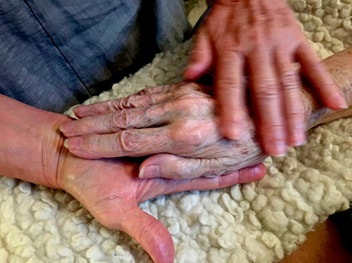 Dying at home can be scary and stressful for both the terminally ill patient and the caregiver. Many caregivers have never had to deal with impending death. They are often unprepared for the sudden and often uncomfortable end of life situations they will face. Health Care Providers: The most obvious benefits of dying at home is the fact that there are currently many resources available. In the case of a patient who has cancer or AIDS or other terminal disease, caring for such a patient may mean a 24-hour caregivers, seven-day a week, multiple hospital visits, etc. Hospice is available and usually paid for by insurance or Medicare. There is a definite comfort factor in knowing your loved one is being cared for in their home by people who know how to take care of them best. Legal Implications: Another issue to think about is whether the terminally ill patient is legally competent to make medical decisions or not. In many states, it is a matter of public record if the patient is competent or not. Although many people may be unaware, the fact is that many families cannot afford to hire a full-time caregiver. They may also have other financial obligations that must be met. The family should discuss all these matters with the doctor and decide together whether or not they can handle the care of the dying patient on their own. Again, hospice is available in most communities and is an option to consider. There ARE sacrifices to be made when a loved one dies in your care – and expenses. Both of these must be taken into consideration. Benefits: Although many feel much more comfortable with their loved one staying in the hospital when they are dying, this isn't always the best option. Hospice provides both the comfort and assistance of the hospital environment, but it provides far more than that. Hospice provides emotional comfort as well as medical assistance. This emotional comfort may make the difference between staying in the comfort of the home where they can receive help in the final moments and having to stay in a hospital room where they are lonely, bored, and with limited medical attention. The patient will have more comfort, sleep better, and be happier if they are able to remain in the familiar surroundings of their own home. Another benefit of hospice care is that the patient will not be separated from their friends and family members for longer than is usually the case with a hospice care recipient. Many families are able to visit their loved ones in their hospice room on the day of hospice (if it is a residential care facility). This allows family members to touch and comfort the dying person while they are getting the final support they need. If you choose this option, your family member will be encouraged to take advantage of this extra support, which is often overlooked by families who prefer to stay in the hospital for the last days of the patient's life. These benefits of hospice care also extend to the people who are cared for by these skilled and compassionate professionals. As mentioned earlier, there is one such benefit, and that is financial comfort. When a person is dying in a hospital, it may be difficult to pay the bills. Many times, the bills are so high that even paying a portion of them can be a huge burden, particularly if you are unemployed – being a full time care giver. When you are cared for at home by a team of hospice professionals, you can rest assured that the highest level of care is being given regardless of the expense. This includes medications, bedding, and anything else that may need to be bought for comfort. One other benefit is that it reduces the stress and anxiety that can be associated with the end of life. This is particularly true for patients who are highly sensitive about death and often fear being alone, or even dying alone. The emotional impact is also a great factor.
0 Comments
Your comment will be posted after it is approved.
Leave a Reply. |
Archives
July 2024
AuthorSteve Schafer is the founder of TheEulogyWriters and the author of hundreds of heartfelt, wonderful eulogies. He lives in Texas and has been writing eulogies for well over thirty years. The articles in this blog are designed to help people through the process of losing loved ones and exploring issues in the aging process. |
|
The Eulogy Writers
4092 Old Dominion Dr. West Bloomfield, MI 48323 |
Writers: Steve Schafer, Ralph DiBiasio-Snyder, Abi Galeas, Miriam Hill
Steve's Personal Cell Phone: (734) 846-3072 Our email address is: [email protected] |